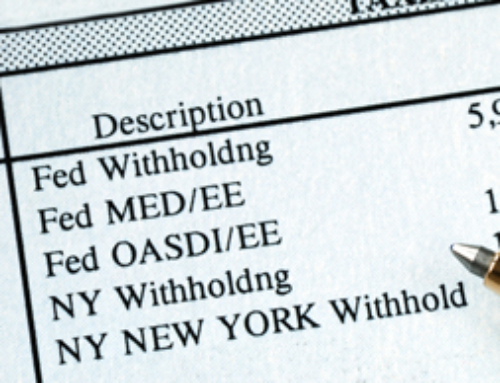 Before one of my EA Exam Review classes recently, a student asked the class for guidance. Rosie said that her client had a house that was underwater. Considering the hurricanes, floods, and storms we’ve been having, I thought she meant it literally.
Before one of my EA Exam Review classes recently, a student asked the class for guidance. Rosie said that her client had a house that was underwater. Considering the hurricanes, floods, and storms we’ve been having, I thought she meant it literally.
But no—Rosie’s client’s home loan was upside down: the mortgage balance was higher than the home’s market value. What could Rosie do to help her client with the tax implications of a short sale or foreclosure?
When you think about how well the federal government protected our investments and the housing market, it’s no surprise we are facing a foreclosure rate rapidly approaching that of the Great Depression.
According to RealtyTrac, 1 out of every 136 homes received a foreclosure notice in the third quarter of 2009. If you live in one of these homes, you are facing a decision: try to sell your home, deed it to the bank, or let it go to foreclosure. You’re hoping, now that you’ve hit rock bottom, that at least the pain will end and you can start over.
The bad news is that when you don’t pay the full amount of a debt, you face an ugly tax consequence: income from cancellation of indebtedness. Sometimes it is called “phantom income” but what it really refers to is income you don’t have in your pocket.
Worse, you may owe taxes on it. Look for a 1099-C, Cancellation of Debt, or a 1099-A, Acquisition or Abandonment of Secured Property, in the mail early next year, if you haven’t already received one.
Lessening the Pain
All is not lost! Remember, your TaxMama is all about finding ways around the taxes.
1. Avoid taxes altogether. The Mortgage Forgiveness Debt Relief Act of 2007 protects you from taxes on the cancelled or abandoned debt if the defaulted loans were “qualified principal residence indebtedness” -meaning your original mortgage debt or loans were taken to buy, repair, rebuild, or remodel your home.
Here’s what the IRS Says: “You can exclude canceled debt from income if it is qualified principal residence indebtedness. Qualified principal residence indebtedness is any mortgage you took out to buy, build, or substantially improve your main home. It also must be secured by your main home. Qualified principal residence indebtedness also includes any debt secured by your main home that you used to refinance a mortgage you took out to buy, build, or substantially improve your main home, but only up to the amount of the old mortgage principal just before the refinancing.”
This also works with farm debt and nonrecourse debt-debt where the lender may not go after you for any unpaid balance.
This special deal applies to defaulted debts from 2007 through 2012. Read more about it here.
2. Avoid some or all of the taxes. What if you refinanced and consolidated your debts or your debt cancellation is from credit cards, and you don’t qualify for the mortgage amnesty? TaxMama has another way out for you!
Insolvency: The IRS has a special provision to help you exclude all or part of the cancelled debt income. How does it work? For each 1099-C or 1099-A you receive, you have to do a worksheet showing how much your total debt was the day before the loan was cancelled. Subtract your total assets. If your debts were higher, you’re insolvent on that day. You can exclude as much of your cancelled debt income as the level of your insolvency.
Example: On August 2, your lender cancelled a $25,000 credit card balance. On August 1, your total debt, including the credit card balance, was $175,000. Your assets were $160,000, and $15,000 is the amount of your insolvency. You still have to pay taxes on $10,000.
Most people who reach this point will be fully insolvent. You will probably qualify to avoid all the tax.
Use IRS Form 982 to exclude the debt in both instances. The Taxpayer Advocate Service website provides tools for you.
Of course, if neither of these two options works, you can always file tax bankruptcy. But that’s another story-for another day.
Eva Rosenberg, EA, is the publisher of TaxMama.com®, where your tax questions are answered. She teaches tax professionals how to represent you when you have tax problems. She is the author of several books and e-books, including Small Business Taxes Made Easy. Follow her on Twitter: @TaxMama






